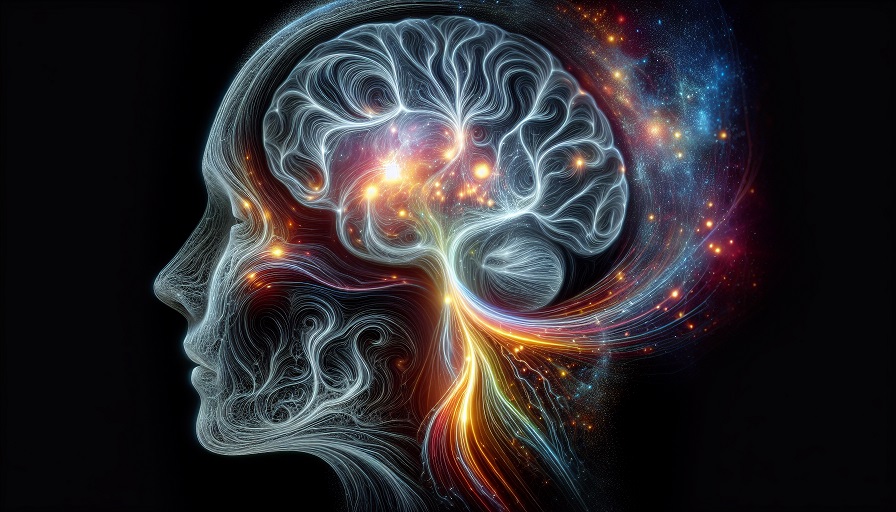
Let’s get something straight right from the start: therapy can be life-changing. For many people, it’s a lifeline—a safe space to process pain, untangle emotions, and gain perspective. It’s helped millions, and it absolutely has value. But here’s the part that rarely gets said out loud: therapy isn’t always enough.
There are people who go to therapy week after week, month after month, and still feel stuck. Not because they’re not “trying hard enough,” and not because their therapist isn’t qualified, but because there’s a missing piece of the puzzle. Mental health isn’t just emotional. It’s biological, too. And until we acknowledge that, a lot of people will keep spinning their wheels in sessions that never seem to move the needle.
Contents
Talk Therapy Isn’t Designed to Fix Biochemistry
Therapy is great at what it does—helping people understand their thought patterns, build coping skills, and reframe beliefs. But no amount of insight will produce serotonin. No amount of journaling will rebalance your neurotransmitters. And no deep breathing exercise will fix a nutrient deficiency.
In other words, if your brain is struggling to function on a basic chemical level, no amount of talk is going to override that. It’s like trying to debug software when the hardware is failing. The best therapist in the world can’t compensate for a brain that’s undernourished, overinflamed, or chronically depleted.
When Therapy Alone Isn’t Working
If you’ve ever walked out of therapy feeling like, “Well, that was helpful… but I still feel awful,” you’re not alone. That disconnect can happen when you’ve gained insight into your problems but haven’t addressed the physical systems contributing to them.
Here are a few signs that therapy might not be enough on its own:
- You understand your issues intellectually, but nothing changes emotionally.
- You’ve made all the lifestyle changes recommended—but still feel flat or foggy.
- You struggle to focus, even during sessions.
- You feel physically exhausted after therapy, not emotionally relieved.
- You make progress… and then regress just as fast.
None of this means therapy is bad. It just means you may be missing a critical support layer: brain health.
Your Brain Is Part of the Conversation
Mental health lives in your brain—and your brain is a physical organ. It needs energy, nutrients, and rest. It’s affected by inflammation, blood flow, and hormone balance. When these systems are out of sync, emotional regulation becomes harder. Focus becomes harder. Even the ability to absorb insight and put it into action becomes harder.
So if your therapy isn’t working the way you hoped, it might not be a mindset issue. It might be a mitochondria issue. Or a vitamin issue. Or a neurotransmitter issue. That’s not “woo” or oversimplification—it’s neuroscience.
Therapy + Biology: A Smarter Combo
Think of therapy as software—it helps you run better programs. But your brain needs solid hardware to run those programs efficiently. When you combine therapy with physical brain support, you create a more complete mental health approach.
That support can include:
- Improved sleep quality – Poor sleep interferes with emotional regulation and cognitive flexibility.
- Nutrient-dense food – The brain thrives on real food rich in omega-3s, B vitamins, magnesium, and antioxidants.
- Physical movement – Regular exercise increases brain-derived neurotrophic factor (BDNF), which supports neuroplasticity.
- Stress management practices – Chronic stress rewires the brain toward fear and reactivity, undermining progress in therapy.
- Brain supplements (nootropics) – Targeted formulas may support focus, memory, and mood—making therapy more effective.
How Nootropics Can Enhance Therapy Outcomes
This is where nootropics—cognitive enhancers—can offer real value. They’re not about suppressing symptoms like traditional medications, but about nourishing the brain so it can function better. When your mental energy, memory, and mood are more stable, you’re better equipped to benefit from the psychological work you’re doing.
Take Citicoline, for example. It supports brain energy and attention—so you can stay engaged during therapy sessions. L-Theanine promotes calm, focused alertness, helping reduce anxiety without drowsiness. Bacopa Monnieri supports memory and stress resilience. And Lion’s Mane Mushroom may even help with long-term neuroplasticity—making it easier to integrate new patterns of thought.
Formulas like Mind Lab Pro combine these ingredients to support multiple brain systems. They won’t fix deep trauma or replace human connection—but they can help your brain process and retain more of what therapy offers.
Therapy Shouldn’t Have to Carry the Whole Load
There’s a quiet pressure in modern wellness culture to believe that therapy alone should be enough. If it isn’t working, the assumption is that you’re not trying hard enough or not being open enough. But what if the issue isn’t effort? What if it’s energy?
You can’t pour from an empty cup—and you certainly can’t do deep emotional work when your brain is running on fumes. It’s time we stopped treating the mind and brain as separate. They are deeply intertwined. Supporting one without the other is like training for a marathon and ignoring your shoes.
Therapy is powerful. But it’s not magic. It works best when your brain has the physical foundation to engage, integrate, and grow. That means paying attention to sleep, diet, movement—and yes, even supplementation when needed.
If therapy alone hasn’t worked for you, you’re not broken. You’re not unfixable. Your brain just might need more support. And once it gets that support, everything else—including the emotional healing—can finally begin to click.

